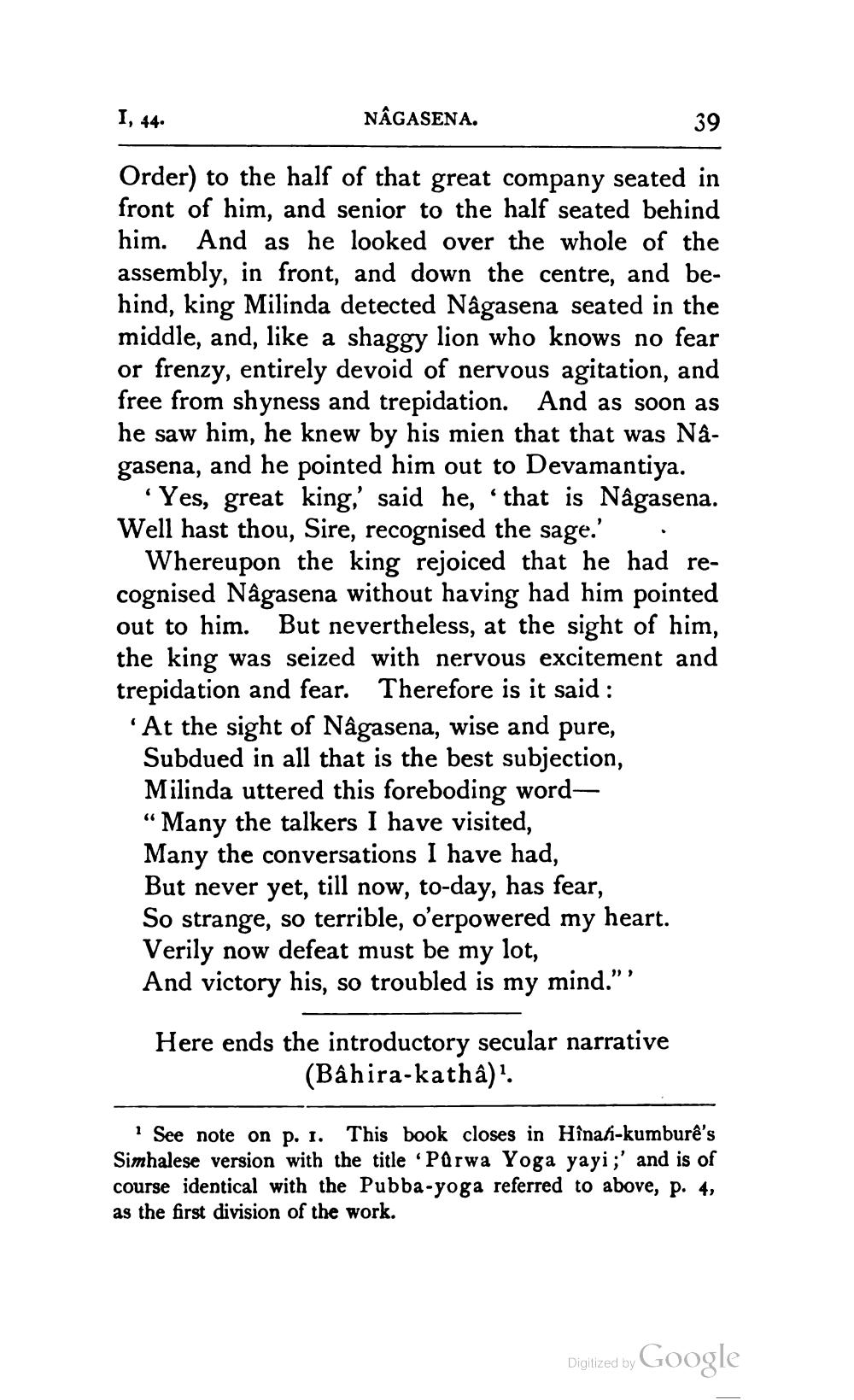________________
I, 44.
NAGASENA.
39
Order) to the half of that great company seated in front of him, and senior to the half seated behind him. And as he looked over the whole of the assembly, in front, and down the centre, and behind, king Milinda detected Nâgasena seated in the middle, and, like a shaggy lion who knows no fear or frenzy, entirely devoid of nervous agitation, and free from shyness and trepidation. And as soon as he saw him, he knew by his mien that that was Nâgasena, and he pointed him out to Devamantiya.
'Yes, great king,' said he, that is Nâgasena. Well hast thou, Sire, recognised the sage.'
Whereupon the king rejoiced that he had recognised Nâgasena without having had him pointed out to him. But nevertheless, at the sight of him, the king was seized with nervous excitement and trepidation and fear. Therefore is it said:
'At the sight of Nâgasena, wise and pure, Subdued in all that is the best subjection, Milinda uttered this foreboding word— "Many the talkers I have visited, Many the conversations I have had, But never yet, till now, to-day, has fear, So strange, so terrible, o'erpowered my heart. Verily now defeat must be my lot, And victory his, so troubled is my mind."'
Here ends the introductory secular narrative (Bâhira-kathâ)1.
1 See note on p. I. This book closes in Hînati-kumburê's Simhalese version with the title 'Purwa Yoga yayi;' and is of course identical with the Pubba-yoga referred to above, p. 4, as the first division of the work.
Digitized by Google




